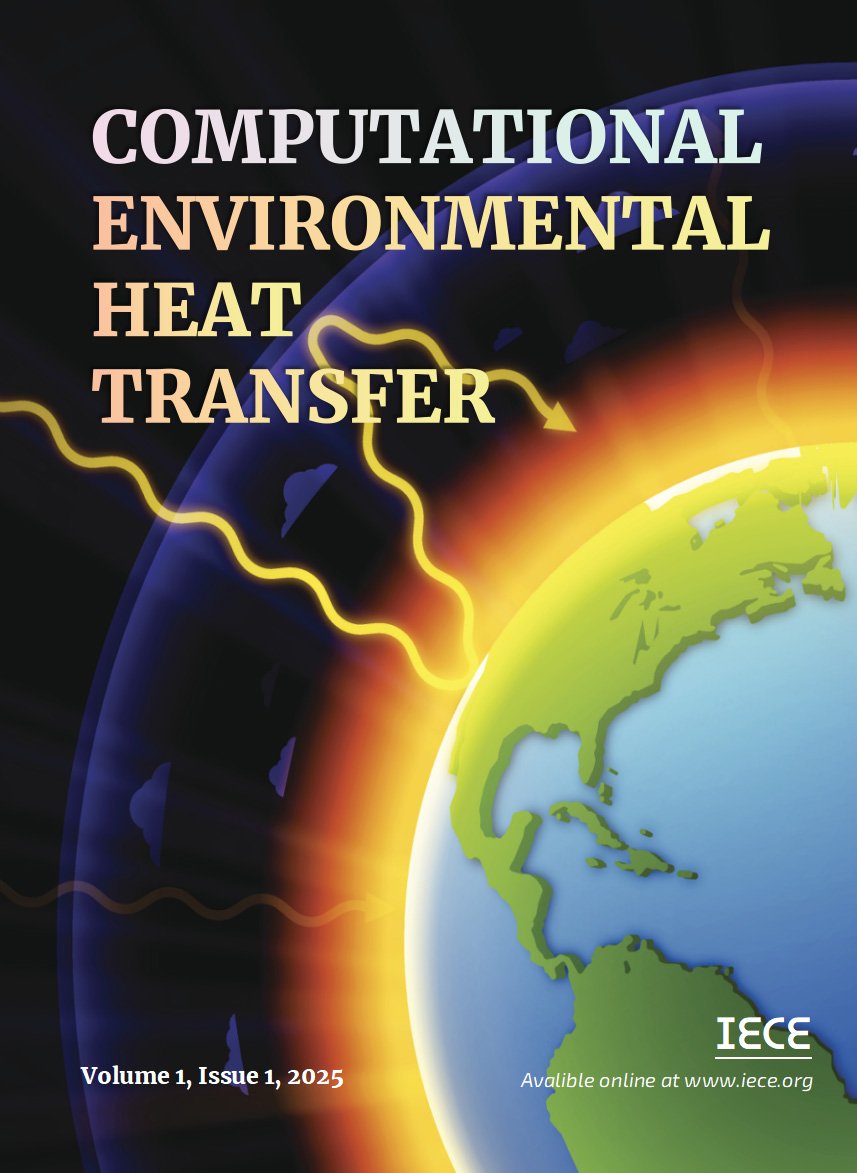Journal Information
Computational Environmental Heat Transfer
Online ISSN: request pending
Print ISSN: request pending
Publishing model: Open Access
DOI Prefix: 10.62762/CEHT
Aims
Computational Environmental Heat Transfer is an interdisciplinary journal for the exchange of information among mechanical, chemical, biomedical, nuclear and aeronautical engineers, and researchers concerned with heat and mass transfer, thermal power and fluid dynamics. To provide a platform for researchers, scientists, and engineers to share their latest research findings, ideas, and applications in the field of computational environmental heat transfer. To advance the knowledge and understanding of environmental heat transfer phenomena and their impact on the environment. To promote interdisciplinary collaboration and exchange of ideas among researchers from diverse disciplines, including environmental science, physics, mathematics, computer science, and engineering.
Scope
1. Computational methods: The journal covers the development and application of computational methods, including numerical methods, algorithms, and software tools, for solving environmental heat transfer problems.
2. Environmental heat transfer: The scope includes all aspects of environmental heat transfer, including conduction, convection, radiation, and phase change, in various environmental systems, such as atmosphere, oceans, land, and living organisms.
3. Applications: The journal welcomes submissions on a wide range of applications, including:
- Climate modeling and prediction
- Air and water pollution modeling
- Building energy efficiency and thermal comfort
- Renewable energy systems (e.g., solar, wind, geothermal)
- Environmental impact assessment and mitigation
4. Interdisciplinary approaches: The journal encourages submissions that combine concepts and methods from environmental science, physics, mathematics, computer science, and engineering.
Key Topics
1. Numerical methods: Development and application of numerical methods for solving environmental heat transfer problems.
2. Computational fluid dynamics: Application of computational fluid dynamics (CFD) to study environmental heat transfer phenomena.
3. Heat transfer modeling: Development and application of heat transfer models for environmental systems.
4. Environmental impact assessment: Use of computational models to assess the environmental impact of heat transfer-related phenomena.
5. Renewable energy systems: Application of computational models to optimize the performance of renewable energy systems.
Publication Frequency
Quarterly
Ownership

The journal is owned by Institute of Emerging and Computer Engineering.
Archiving
All journals published by IECE are archived in Portico, which provides permanent digital archiving for scholarly journals.
Ethics Statement
IECE is responsible for implementing rigorous peer review and strict ethical policies and standards to ensure that high quality scientific work is added to the field of scholarly publishing. IECE takes such publishing ethics issues very seriously, and our editors are trained to enforce COPE's Core Practices and Guidelines, with a zero-tolerance policy for plagiarism, data falsification, and other behaviours. To verify the originality of content submitted to our journals, we use iThenticate to check submissions against previous publications.



